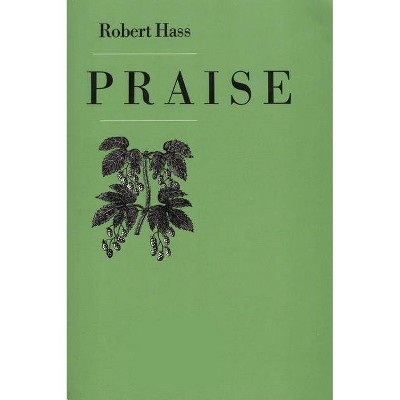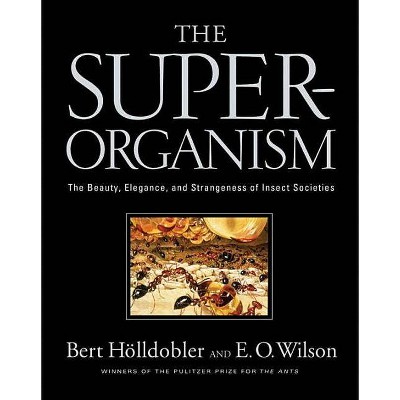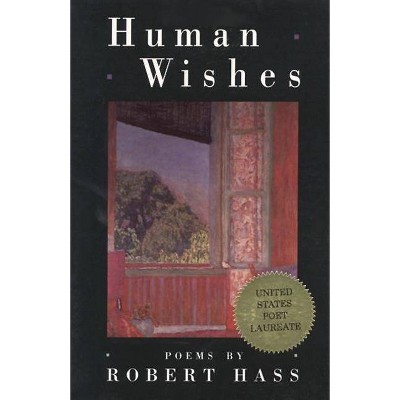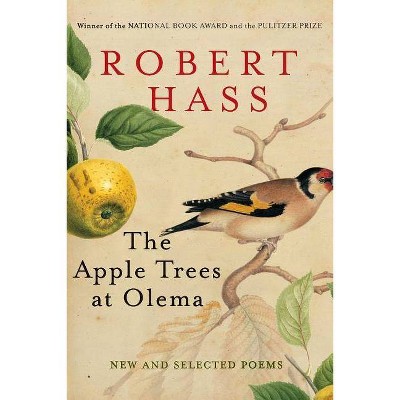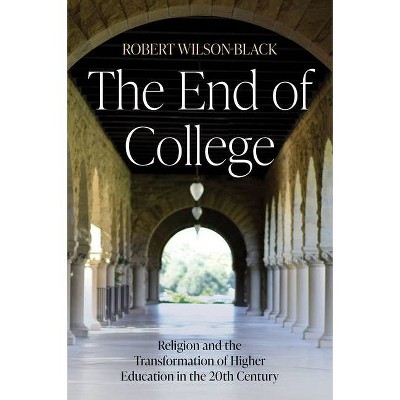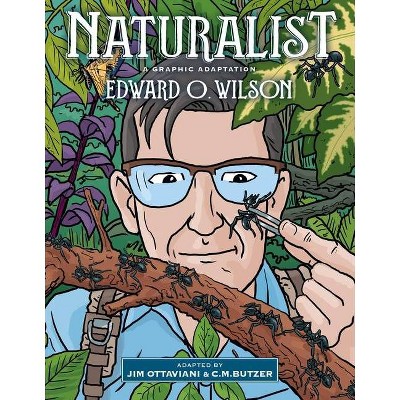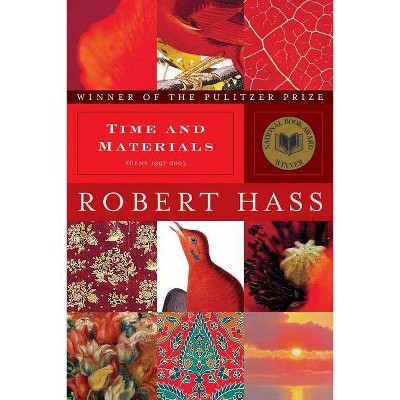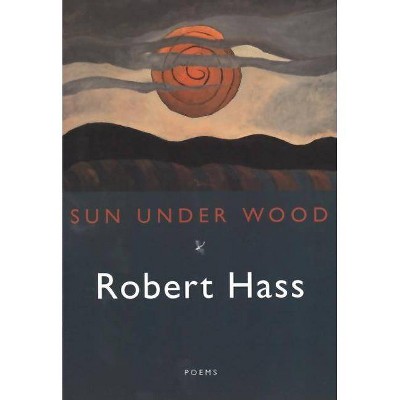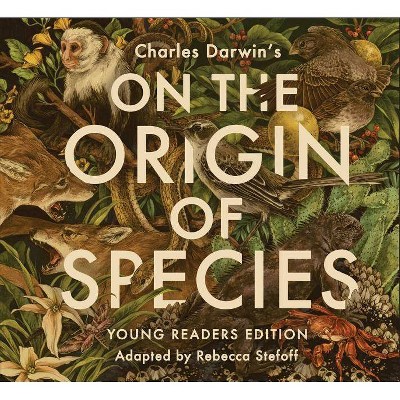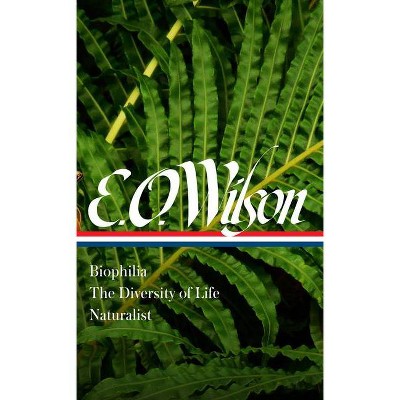The Poetic Species - by Edward O Wilson & Robert Hass (Hardcover)
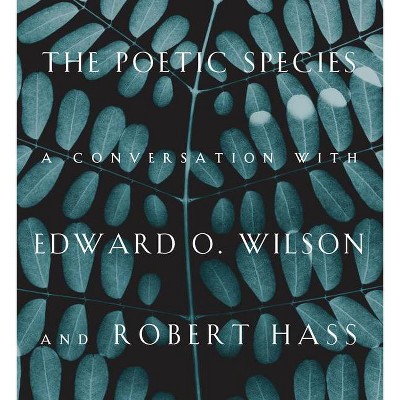
Similar Products
Products of same category from the store
AllProduct info
<p/><br></br><p><b> About the Book </b></p></br></br>A meeting of great minds at the intersection of the arts and sciences<p/><br></br><p><b> Book Synopsis </b></p></br></br><i><b>World Literature Today</i> Editor's Pick</b> <p/>"Enchanting. . . . <i>The Poetic Species</i> is a wonderful read in its entirety, short yet infinitely simulating." --<b>MARIA POPOVA, <i>Brain Pickings</b></i> <p/>In this shimmering conversation (the outgrowth of an event co-sponsored by the American Museum of Natural History and Poets House), Edward O. Wilson, renowned scientist and proponent of "consilience" or the unity of knowledge, finds an ardent interlocutor in Robert Hass, whose credo as United States poet laureate was "imagination makes communities." As they explore the many ways that poetry and science enhance each other, they travel from anthills to ancient Egypt and to the heights and depths of human potential. A testament to how science and the arts can join forces to educate and inspire, this book is also a passionate plea for conservation of all the planet's species. <p/><b>Edward O. Wilson</b>, a biologist, naturalist, and bestselling author, has received more than 100 awards from around the world, including the Pulitzer Prize. A professor emeritus at Harvard University, he lives in Lexington, Massachusetts. <p/><b>Robert Hass</b>' poetry is rooted in the landscapes of his native northern California. He has been awarded the MacArthur "Genius" Fellowship, the National Book Critics Circle Award (twice), the Pulitzer Prize, and the National Book Award. He is a professor of English at University of California-Berkeley.<br><p/><br></br><p><b> Review Quotes </b></p></br></br><br><em><strong>World Literature Today</em> Editor's Pick</strong> <p/>"Enchanting. . . . <em>The Poetic Species</em> is a wonderful read in its entirety, short yet infinitely simulating." --<em><strong>Brain Pickings</strong></em> <p/>"The principle of consilience, or the unity of knowledge, infuses this conversation between biologist E. O. Wilson and poet Robert Hass. . . . The eminent duo explore echoes and parallels in their respective fields with eloquent concision, from Wilson's advice to poets ("Colonize science") to Hass's musings on the interplay of selfish gene and social imperative in imagination." --<em><strong>Nature: International Weekly Journal of Science</strong></em> <p/>"<em>The Poetic Species</em> explores the intersection of science and the arts in relation to the staggering environmental crisis the world is encountering. I am encouraged by this call to action by both scientific and literary communities and curious about the possible responses." --<em><strong>World Literature Today</em> Editor's Pick citation</strong> <p/>"Every page offers something worth contemplating . . . <em>The Poetic Species</em> is a fascinating foray into the ways we're connected to each other and the natural world--highly recommended reading." --<em><strong>Rosemary & Reading Glasses</strong></em><br><br><p/><br></br><p><b> About the Author </b></p></br></br><b>Edward O. Wilson</b> is an American biologist, researcher, theorist, naturalist, and author who is often dubbed "the father of sociobiology." His biological specialty is myrmecology, the study of ants, on which he is considered to be the world's leading authority. Wilson is the author of the <i>New York Times</i> bestsellers <i>The Social Conquest of Earth</i> and <i>Anthill: A Novel, </i> as well as the Pulitzer Prize-winning <i>On Human Nature</i> and (with Bert Hölldobler) <i>The Ants.</i> For his contributions in science and conservation, he has received more than 100 awards from around the world. A professor emeritus at Harvard University, he lives in Lexington, Massachusetts. <p/><b>Robert Hass</b>' work is rooted in the landscapes of his native northern California. In his tenure as U. S. Poet Laureate, Robert Hass spent two years battling American illiteracy armed with the mantra "imagination makes communities." For Hass, everything is connected. When he works to heighten literacy, he is also working to promote awareness about the environment. Hass has published many books of poetry including <i>Field Guide, Praise, Human Wishes</i> and <i>Sun Under Wood, </i> as well as a book of essays on poetry, <i>Twentieth Century Pleasures. Time and Materials, </i> his 2007 poetry collection, won both the Pulitzer Prize and the National Book Award. His most recent volume of poetry is <i>The Apple Trees at Olema: New and Selected Poems.</i> He recently published a book of essays titled <i>What Light Can Do: Essays on Art, Imagination, and the Natural World.</i> Awarded the MacArthur "Genius" Fellowship, the National Book Critics Circle Award twice (in 1984 and 1997), and the Yale Series of Younger Poets in 1973, Hass is a professor of English at University of California-Berkeley. <p/>Foreword contributor <b>Lee Briccetti</b> was born in Italy and raised in the United States. She currently lives in New York City where she has been the long-time executive director of Poets House, a national poetry archive and literary center. She has received fellowships from the New York Foundation for the Arts and the Fine Arts Work Center in Provincetown. Her book of poetry, <i>Day Mark, </i> was published in 2005 by Four Way Books.<br>
Price History
Price Archive shows prices from various stores, lets you see history and find the cheapest. There is no actual sale on the website. For all support, inquiry and suggestion messagescommunication@pricearchive.us
